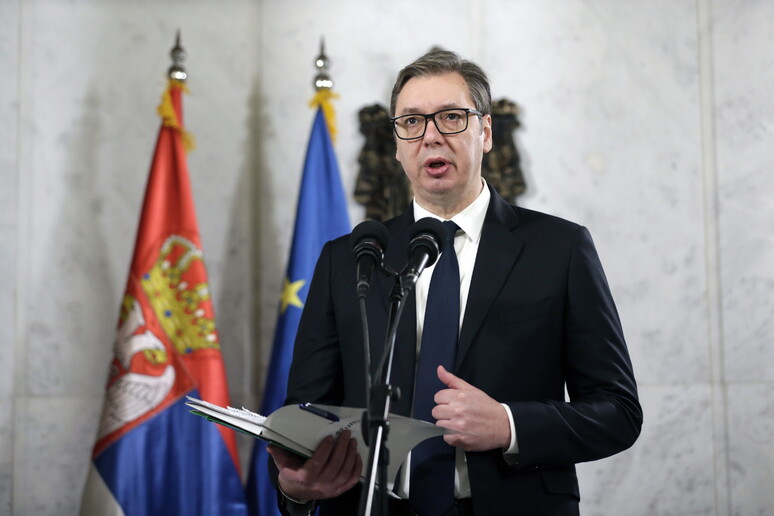Point five argues that the two sides will support their aspiration to become members of the European Union. Point six states that although this agreement is an important step toward normalization, the two sides will continue the EU-led dialogue process with new momentum, leading to a comprehensive legally binding agreement for normalization of relations. In the future, the sides will also strengthen cooperation in the fields of economy, science and technology, transportation and communications, justice, post and telecommunications, health, culture, religious faith, sports, environmental defense, search for the disappeared and others. In item seven it says that the parties are committed to achieving concrete understandings in line with the important instruments of the Council of Europe and taking advantage of existing European experiences in order to ensure an adequate level of self-government for the Serb Community in Kosovo. The parties at the same time will formalize the status of the Serbian Orthodox Church in Kosovo, ensuring a high level of protection for Serbian religious and cultural heritage, in line with existing European models. Item eight states that the parties will exchange permanent missions. Nine refers to the mutual acknowledgement of the commitment of the EU and other donors to create a special package of financial support for joint projects directed at economic development, communications, green transition, and other crucial areas. Under item ten, the parties pledge to form a joint commission, chaired by the EU, to oversee the implementation of this agreement, with the parties confirming their obligations in implementing all previous agreements. According to the newspaper, this would be the proposed agreement submitted to the Belgrade and Pristina leaderships by the mission of international envoys last Friday.
This text will evidently be dealt with by the Serbian government at its meeting tomorrow, which will also be attended by President Aleksandar Vucic.
ALL RIGHTS RESERVED © Copyright ANSA





